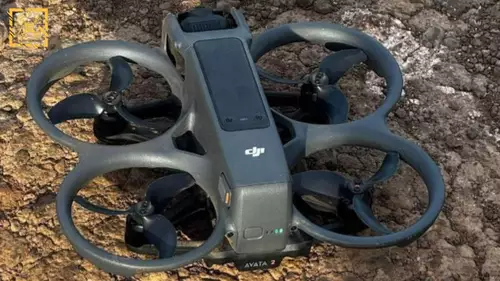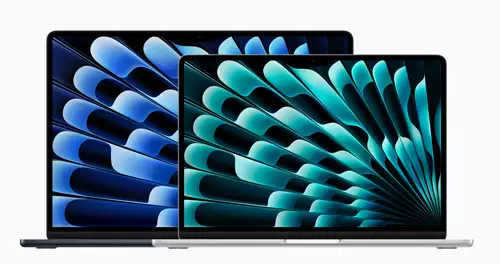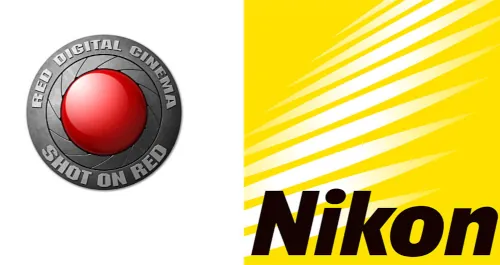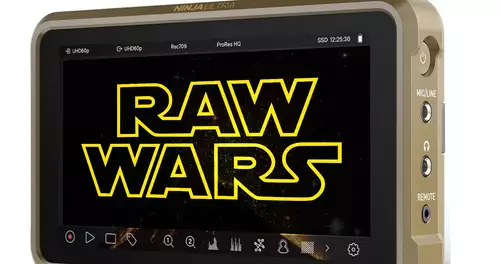Frage von joe23:
Hello,
what you need to export as DV Stream? What are the advantages and disadvantages compared to other formats?
thanks:)
joe
Antwort von Wiro:

Hello,
DV export is always useful if the footage will be processed in any way / need. Whether it is in other programs or as an intermediate in the NLE.
All other (re-compressing) export solutions are intended only for the (final) export distribution purposes.
Gruss Wiro
Antwort von joe23:

Thanks in advance. I can only with the format. Dv start nix. I thought of you for taking call'd purpose we need to uncompressed AVI or MOV.
Is. Dv what Mac specific? googlen (one round leads me to this assumption).
tschö
joe
Antwort von Gast1:

True, *. dv is an Apple / Quicktime format
Antwort von Markus:
 I thought of you for taking call'd purpose we need to uncompressed AVI ...
I thought of you for taking call'd purpose we need to uncompressed AVI ... Is the recording of a digital camcorder, then you blow in an export as an uncompressed AVI with only the amount of data. DV images are compressed 5:1, ie synonymous, it is sufficient to use a DV codec.
Antwort von treppenmanni:

that is, I get. dv not imported into premiere? alternative is therefore uncompressed dv-pal?
Antwort von Markus:
 that is, I get. dv not imported into premiere?
that is, I get. dv not imported into premiere? Is that a question or a statement? Twice already answered that was up next.
alternative is therefore uncompressed dv-pal? DV stands for digital video, for the local PAL television standard. What do you mean with respect to computer files? And why do you ask again for "uncompressed", where DV is compressed, but 5-1?
Antwort von uli laier:

well,
I wanted to know whether there even a possibility is to save uncompressed dv. But apparently not so. You say it's always 5:1. I would be interested only in what is now customary. If I want to have any quality loss, how should I proceed then. But since there must be a concrete path that everyone goes with dv (works the material is indeed at least as erstmal of the camera)
Antwort von Markus:
 I wanted to know whether there even a possibility is to save uncompressed dv.
I wanted to know whether there even a possibility is to save uncompressed dv. Yes, the do exist, but the quality makes no sense, since the data previously already been compressed. So you just magnify the amount of data without seeing a difference in the picture too.
I would be interested only in what is now customary. If I want to have any quality loss, how should I proceed then. Capture from DV camcorder via firewire, storing the data as a DV-AVI, edit the recordings in the video editing program, export as a new DV-AVI and / or playing off to DV tape.
But since there must be a concrete path that everyone goes to work with dv This is not quite as easy as any other codecs on his calculator and may have access to specific DV codec, which together with existing DV editing hardware.
In summary: Decide on a DV codec, which you have no visible difference between the original and a DV-AVI provides copy. Then this is
your best way with the DV editing. ;-)
Antwort von monx:

wow interesting thread,
I wanted to know whether there even a possibility is to save uncompressed dv.
Yes, the do exist, but the quality makes no sense, since the data previously already been compressed. So you just magnify the amount of data without seeing a difference in the picture too. how this is uncompressed video / audio signal stored on the dv tape?? which would then format ur? dv?
In summary: Decide on a DV codec, which you have no visible difference between the original and a DV-AVI provides copy. Then this is your best way with the DV editing. ;-) you say dv-avi is 1:5 compressed, then I understand, but not entirely for what it then if the codecs are Meher 1:5 is already given by default.
lg
Monx
Antwort von Markus:
 how this is uncompressed video / audio signal stored on the dv tape?? which would then format ur? dv?
how this is uncompressed video / audio signal stored on the dv tape?? which would then format ur? dv? The data on DV tape are already synonymous 5-1 compressed, ie, when capturing on the calculator itself does not s.der sequence of ones and zeros. (1:5 would be an increase in data ;-)
you say dv-avi is 1:5 compressed, then I understand, but not entirely for what it then if the codecs are Meher 1:5 is already given by default. There are in addition to the compression of a whole series of other parameters (eg brightness level, color range, etc.) that can take into account a codec - or simply not synonymous.
Antwort von monx:

exactly 5:1, but I mean ;-)
The data on DV tape are already synonymous 5-1 compressed, ie, when capturing on the calculator itself does not s.der sequence of ones and zeros. (1:5 would be an increase in data ;-) I do not understand ... if the capture does not change for what need you can then transmit dv codec??
Antwort von Markus:

The DV codec then comes into play when s.Videomaterial something is changed, eg if you add a title or puttest a color correction. The codec is before then is saved as the Picture.
Antwort von monx:

aha ok,
But then I conclude that the dv codec does not compress.
if he does it but then I had 1 / 5 (compression on tape) * 1 / 5 (dv codec) = 1 / 25 the amount of data.
Otherwise just 1 / 5
or?
edit:
oh blödsinn ... color correction and the like are coming infos about this, and dannkomrimiert the dv codec anyway
or?
Antwort von Wiro:
 if the capture does not change for what need you can then transmit dv codec??
if the capture does not change for what need you can then transmit dv codec?? Hello,
Digital video will bring a massive flood of data with itself - a record with 25B / s 720x576px RGB generates a stream of about 30 MB / s. To get it smaller, he is first throttled using RGB-YUV Converter - is about 18 MB / s remaining. To save other data sets is then compressed in the camcorder 5:1 (by DV codec), so that ultimately end up on the tape at about 3.6 MB / sec.
To illustrate this compressed signal of the 3.6 MB NLE must decompress the data stream. For this he needs the DV codec. If a change is made in the NLE s.Picture, this is s.dekomprimierten material, so it must then be rendered, that is, converted back again into the DV - Standard. One part of the NLE requires the DV codec.
I think that is so clear, why you need the DV codec.
Gruss Wiro
Antwort von Steadycameraman:

[...]
Digital video will bring a massive flood of data with itself - a record with 25B / s 720x576px RGB generates a stream of about 30 MB / s.
[...]
But are not 25MBit / s?
Antwort von Markus:
 But are not 25MBit / s?
But are not 25MBit / s? That's true. 25 Mbit / s divided by 8 (because 8 bits = 1 byte) = ca ..
... so that ultimately end up on the tape at about 3.6 MB / sec.
Antwort von Steadycameraman:

25 Mbit / s divided by 8 = 3.125 MB / s
It's all clear to me, but you wrote:
with 25B / s
Antwort von Markus:

The meaning of the word "about" ...
Antwort von Wiro:

Oh yes, we are once again so far that the chaos is perfect. . . ;-)))
Here is an attempt to express it without meticulous mathematical formulas:
The image signal is 3.125 MB / s = 25 Mbit / sec.
There are also audio and timecode, so that the final data stream (approximately = = = approximately approximately approximately approximately = = roundabout) 3.6 MB / sec is.
Gruss Wiro









